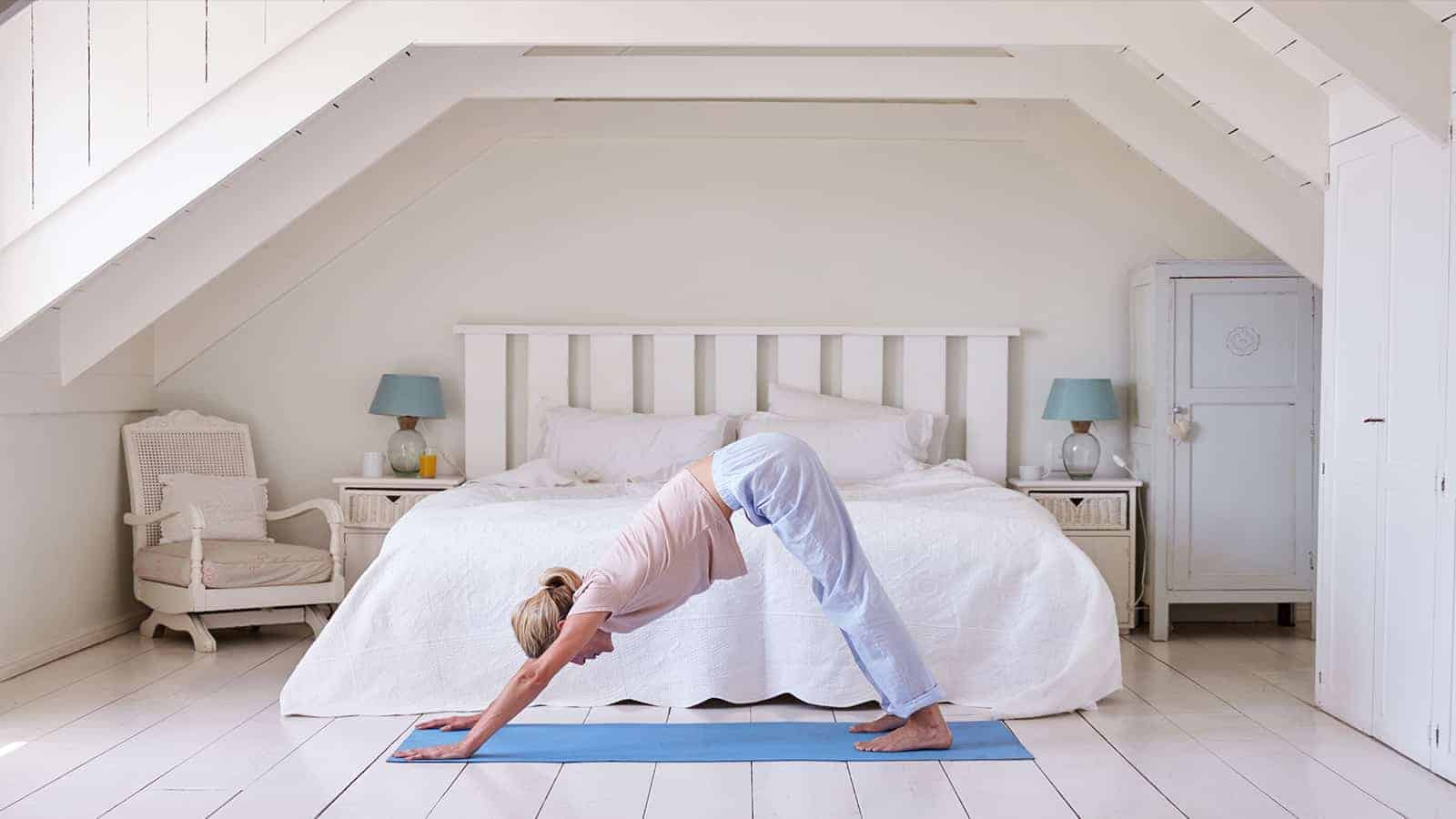Anxiety is one of the leading mental health issues, causing negative interference with their performance at a job or school and with relationships. Everyone experiences anxious feelings sometimes, but it is when it becomes a common occurrence that only gets worse over time that you know there is a problem. Luckily, there are ways to deal with the anxiety that are all-natural and supported by doctors.
If the anxious feelings are occurring most days over a 6 month period (or longer), you may have an anxiety disorder. The symptoms of anxiety can be similar to that of depression, but there are some differences that you will notice. The symptoms may include:
- Restlessness
- Feeling like you’re on-edge
- Become exhausted easily
- Trouble concentrating
- Irritability for no reason or for a minor reason
- Tension in your muscles often
- Constant worrying, even when you shouldn’t be worried
- Trouble falling asleep or staying asleep, even when you’re tired
While some experience it much worse and more often than others, nearly 70% of adults in the United States suffer from anxious feelings on some level. This drastically high number could be significantly reduced by changing some important areas of your life. These proven ways to deal with anxious feelings have been backed by doctors and have shown an overall reduction in stress and anxious feelings.
It is important to note that while doctors have backed these methods and support them, anyone suffering from frequent anxious feelings should see their doctor and discuss the issue with a professional. Your doctor will likely agree that you should try these methods first, but most doctors will want to monitor the progress to ensure that there is an improvement.
10 Proven Ways to Deal With Anxiety
1. Exercise regularly.
Regular exercise can lead to a long-term and major reduction in anxiety. When you begin to exercise on a regular basis, you will notice a quick change in your well-being because it lowers your stress levels and releases endorphins that boost your mood. Exercise also improves your sleep, raises your confidence, and makes you feel more competent; all benefits that help relieve anxious feelings.
There are many different forms of exercise, and all types will help with anxious feelings. Running, walking, riding a bicycle and swimming are some of the best ways to deal with it, however, because the physical exertion required during these exercises is greater and can offer greater benefits.
2. Use essential oils to reduce anxiety.
Essential oils can be found in candles, lotions, bubble baths, and many other scented products. You could also apply some essential oils topically or diffuse them. Some of the essential oils that help deal with anxiety include:
- Bergamot
- Lavender
- Vetiver
- Chamomile
- Ylang ylang
- Frankincense
- Rose
- Sandalwood
- Orange
3. Cut back on caffeine.
This stimulant is found in coffee, soda, tea, chocolate, and energy drinks. While it may seem harmless, it is actually a leading contributor to anxious feelings. Doctors do say that, in moderation, caffeine is safe, but it is difficult to determine just how much is too much.
Each person has a different tolerance level so, in order to figure out when you should cut yourself off, keep track of the amount you consume each day. Write down how many cups of coffee, tea, or soda you had, and write down anything else you consumed that contained caffeine. You should also write down how you felt afterward.
If you ever find yourself feeling anxious, make a note to stop consuming caffeine before you get to that point next time. Over time, you’ll know your tolerance and be able to prevent overbearing anxious feelings in that way.
4. Laughter is an anxiety-buster
Laughing can help you deal with anxious feelings in a number of ways including relieving stress and tension. Luckily, it can be easy to find a humorous source. You can look at friends or family members who can make you laugh, watching a comedy on TV, or listening to a funny podcast. Try to find the humor in everyday life, as well, as laughing throughout the day will only further increase your mood.
5. Say ‘no’… and don’t feel bad about it.
How often do you already feel overwhelmed but then still agree to take on something else? This happens all too often and it can quickly lead to burn out anxious feelings, and extreme stress. In order to help your mental health, learn to say ‘no’ and don’t let anyone guilt-trip you into changing your mind.
While the school could use more volunteers, or your boss could use someone to work an extra shift, you also need to think about yourself and your own well-being. Even something as simple as giving a ride to a friend, babysitting someone’s child, or baking cookies for a bake sale, you have to put yourself first sometimes. Self-care is extremely important for your mental health.
6. Stop procrastinating.
When you procrastinate, you cause yourself stress, difficulty sleeping, and lower sleep quality, all of which are a direct link to feeling anxious. This is likely because you cause yourself to have to scramble to catch up, rather than working ahead of time and making healthy progress toward a goal.
One easy way to quit procrastinating is to create a to-do list with the most important tasks at the top. Then, create deadlines that are possible and not overwhelming. Finally, work your way down the list. You should also schedule chunks of time each day to work on the to-do list, as interruptions can cause stress, too. By doing this, you are ensuring you get the important tasks done, which will make you feel less stressed and anxious at the end of the day.
7. Listen to calming music.
Music can have a calming effect on your mind and body, leading to less anxious feelings and less stress. Fast-paced or sad music doesn’t do the trick, rather you should listen to music that is calming, such as classical or instrumental music. It has been proven to lower blood pressure and heart rate, two direct links to anxious feelings.
8. Take up yoga.
This exercise is extremely effective in reducing stress levels and anxious feelings. The goal of yoga is to join your body and mind by bringing attention to your body and breathing.
Some doctors have said that regular yoga exercise can be just as effective (or more so) than medication for regular anxious feelings. While it is not fully understood yet, many believe that this is due to the lower cortisol (a stress hormone) levels, more regular blood pressure and heart rate, and an increase in mood-boosting natural chemicals in the body.
9. Implement breathing techniques.
By taking deep breaths, you are activating relaxation responses in your body. When you are anxious, the opposite happens and you begin breathing quicker.
By forcing yourself to take slow, deep breaths during an anxious moment, you are allowing your body to have that relaxing response. There are specific breathing techniques you can learn that are proven to help with anxious feelings including:
- abdominal breathing
- belly breathing
- paced respiration
During all of these breathing techniques, you will want to breathe in through your nose until your stomach fully rises. You can take a class to learn how to properly do breathing techniques, or you can do a quick internet search to read about or watch a video about breathing techniques for anxious feelings.
10. Spend time with loved ones.
Whether you spend time with your family, friends, or your pet, spending time with those you love can greatly reduce the amount of anxiety you feel. Doing so will give you a sense of belonging, remind you of what you are worth, and can help with the release of oxytocin in your bloodstream. Oxytocin is a natural chemical in your body that helps reduce stress and anxious feelings.
Spending time with your pet helps in all of those ways, plus it can help you by giving you a purpose in life, keeps you active when you play with your pet or walk it, and gives you someone to spend time with all the time.
Final Thoughts on Doctor Recommended Ways to Deal With Anxiety
Anxious feelings plague an enormous number of people and many people believe that prescription medication is the only way to deal with it. Luckily, doctors recommend other ways to deal with the anxiety that are all-natural and have no negative side effects.
Whether you deal with an common and frequent anxious feelings or just have anxious feelings sometimes, these techniques may help you deal with it. Through exercise, music, bonding with loved ones, and many other pleasurable activities, you can combat those anxious feelings in a healthy way.
Don’t get discouraged if you try one of these methods and it doesn’t fully work for you. Each person is different and what works for one person may not work for another. Just continue trying different methods until you find a few that work for you.















 Community
Community

